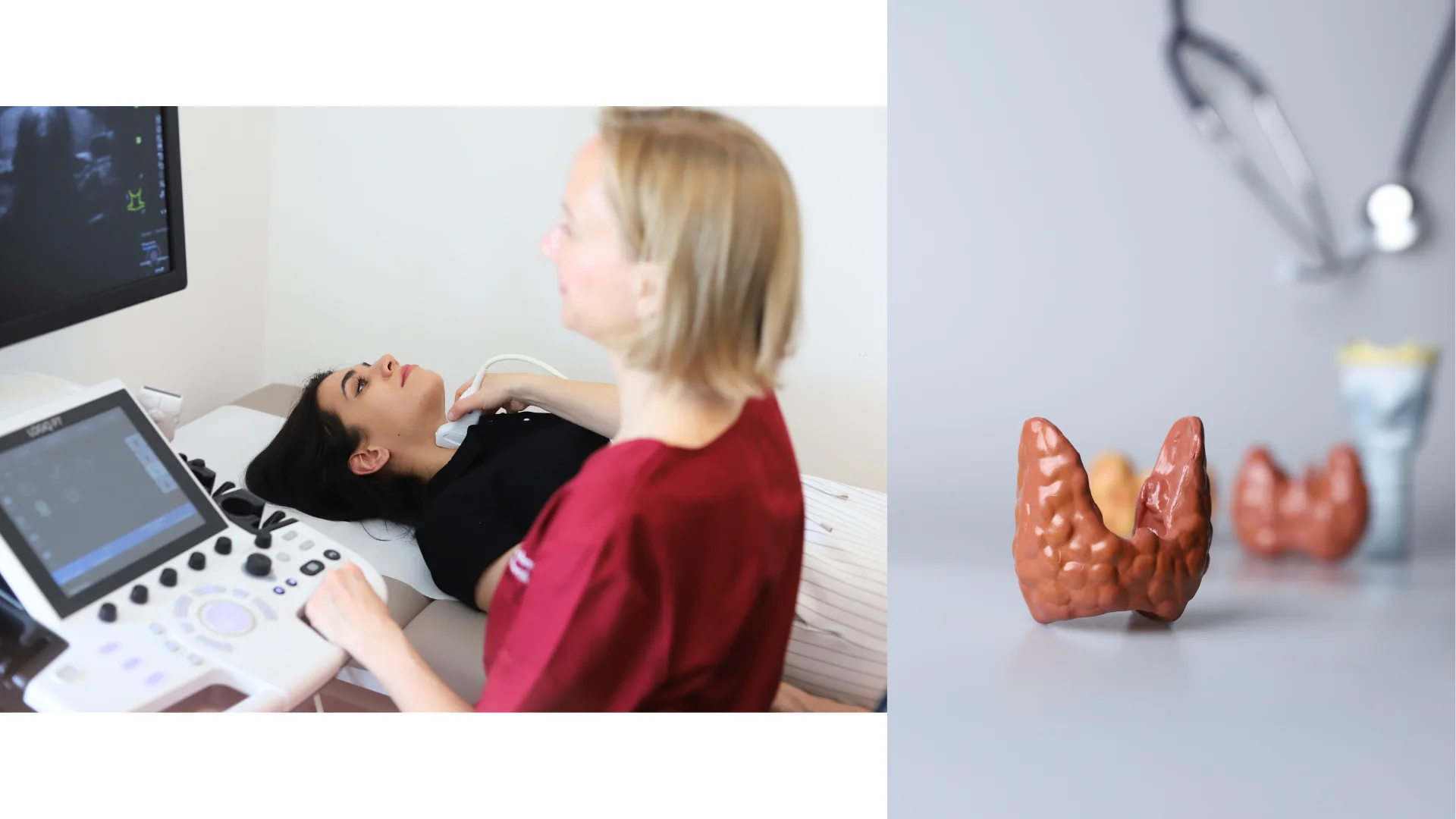With hyperthyroidism everything in the body is accelerated. The most common causes for hyperthyroidism are Graves disease, an autoimmune disorder, thyroid autonomy most commonly due to an autonomic nodule. Acute inflammation of the thyroid gland leads to the release of stored thyroid hormones and hyperthyroidism. Another common cause is overdosing of thyroid medication or exposure to a high dose of iodine, for instance following contrast application with a CT scan. I often see slight hyperthyroidism at the beginning of a pregnancy, which is harmless. Other causes however, need to be excluded.

Hyperthyroid symptoms include palpitations, sweating, weight loss, anxiety, hair loss etc.
Graves disease
Graves is an autoimmune disease with antibodies stimulating the thyroid to produce more hormones. These antibodies are called TSH-receptor-antibodies, abbreviated as TRAK. They can be confirmed in the bloods and are typical for Graves disease. These antibodies can also lead to eye symptoms, a complication of Graves, more commonly seen in smokers. This thyroid disease often occurs during stressful times.
Following the initial diagnosis, we calculate about a year and a half for the therapy. How high the TRAK are and how they change over time gives an indication about the likelihood that the disease can be healed with medication. It is important to address stress and support the body with supplements. A more definite therapy, such as radioiodine therapy or surgery, is necessary, if there is no response to medical treatment or the disease relapses.
Autonomic thyroid nodule
This is a thyroid nodule which produces thyroid hormones independently of the regulatory process and is called a “hot nodule”. This can sometimes lead to hyperthyroidism. The goal of the therapy is to destroy the nodule without causing hypothyroidism and requiring medication. Therapeutic options include surgery, radioiodine therapy or radiofrequency ablation.
Subacute thyroiditis
The painful subacute thyroiditis or Quervains thyroiditis is an inflammation of the thyroid gland leading to tissue destruction, release of thyroid hormones and hyperthyroidism. This condition always occurs when there is a lot of stress and the underlying problem needs to be addressed. A thyroiditis can also present after pregnancy and is called post-partum thyroiditis. This form usually heals without medication.
Iodine excess
A high dose of iodine for example given for a CT scan can lead to hyperthyroidism.
The work up of hyperthyroidism includes bloods for thyroid function and antibodies in conjunction with a thyroid ultrasound.

Graves disease
Bloods are drawn for thyroid function test and TRAK. The therapy for Graves disease is primarily with medication. If this doesn’t control the disease after 12 – 18 months you need to consider surgery.
It is important to know, that the eyes can be affected with Graves disease. The risk of eye involvement is significantly higher in smokers.
Autonomic thyroid nodules
A nodule larger than 10mm may need further evaluation with a scintigraphy to establish an autonomous, hot nodule. If the nodule causes problems, it needs therapy. This can be in the form of an operation, radioiodine therapy or radiofrequency ablation. The options are best discussed with your doctor.
